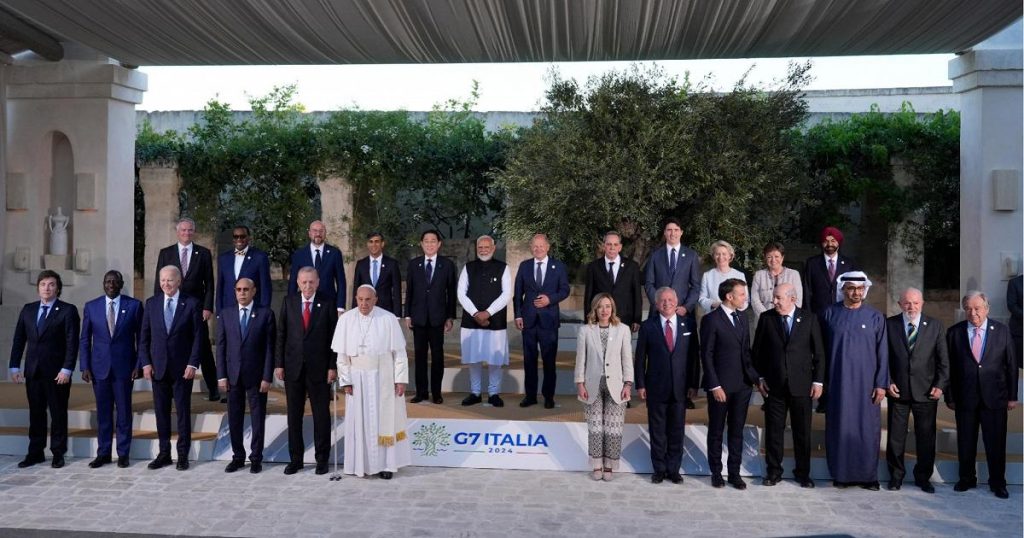The G7 summit held at Borgo Egnazia covered a wide range of topics, from LGBTQ rights to migration, from warnings to China and Russia to calls for peace in the Middle East. Key points included the debut of the Mattei Plan for Africa at the G7, as well as discussions on the rapid expansion of artificial intelligence. The final declaration of the summit reflected convergence among the seven global leaders on various important issues.
The Mattei Plan for Africa, a flagship initiative of Italian Prime Minister Giorgia Meloni, was included in the G7’s final declaration. The plan aims to promote sustainable and economically viable infrastructure in Africa through transparent project selection and financing. The leaders also emphasized the need for a collective approach to ensuring safe, secure, and reliable artificial intelligence, with Pope Francis participating in discussions on the topic.
The G7 leaders launched a coalition to prevent and combat the trafficking of migrants, highlighting the importance of addressing the root causes of irregular migration, improving border management, and disrupting transnational organized crime networks. The summit also addressed the conflict in Ukraine, with a promise to support Kiev and hold Moscow accountable for its illegal aggression.
The G7 leaders issued a warning to Russia, pledging to support Ukraine indefinitely and imposing further sanctions to deter Russian aggression. They also called on China to stop aiding Russia and extended the scope of sanctions to target Chinese businesses and banks supporting Moscow in circumventing existing sanctions. The leaders also expressed concerns about Beijing’s trade policies and their impact on global economic stability.
Urgent calls were made for an immediate ceasefire in Gaza, along with increased humanitarian assistance and a lasting resolution to the crisis that ensures the security of both Israeli interests and Palestinian civilians. The leaders also urged Israel to allow UN refugee agency operations to proceed unimpeded in Gaza. Additionally, the summit reaffirmed the commitment to addressing the triple global crisis of climate change, pollution, and biodiversity loss, emphasizing the need for collective action to reduce greenhouse gas emissions.
The final document of the G7 summit omitted the term “abortion,” but reiterated commitments to universal access to sustainable healthcare services for women, including sexual and reproductive health rights. While the explicit mention of abortion was absent, the summit leaders expressed strong concerns about the erosion of rights for women, girls, and LGBTQIA+ individuals worldwide, condemning violations of their human rights and fundamental freedoms. The G7 reaffirmed its commitment to gender equality, although references to gender identity and sexual orientation from previous summits were notably absent.














